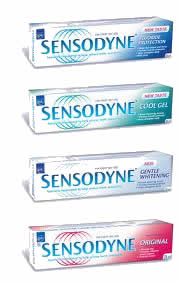THE MANAGEMENT OF EARLY PROSTATE CANCER: A REVIEW
Abstract
ABSTRACT
Objective: To carry out a review of the management of early (clinically localised)
prostate cancer.
Data Source: Review of all published literature on the management of early prostate
cancer was carried out through medline and index medicus searches.
Data Selection: Published data of the management of early prostate cancer over the
last three decades were included in the review.
Data Extraction: Abstracts of articles identified were assessed, read and analysed to
determine their relevance to the title under review.
Data Synthesis: After establishing relevance from the abstract, the entire paper was
read, and the significant points included in the review.
Conclusion: Greater number of men are currently being diagnosed with early
prostate cancer. This is due to widespread use of Prostate Specific Antigen (PSA)
screening available worldwide. Radical treatment including radical prostatectomy
and radical radiation therapy have proven curative value for a significant number
of men with localised disease. Survival outcomes indicate that radical prostatectomy
offers more reliable cure than radiation therapy for clinically localised disease.
Immediate treatment related morbidity of radical prostatectomy and radiation
therapy is currently quite low. Both treatment methods have similar impact on
erectile function and continence. Rectal complications are however unique to
radiation therapy. Surgical and radiation therapy delivery techniques should be
further improved to reduce treatment related morbidity and quality of life outcomes.
Objective: To carry out a review of the management of early (clinically localised)
prostate cancer.
Data Source: Review of all published literature on the management of early prostate
cancer was carried out through medline and index medicus searches.
Data Selection: Published data of the management of early prostate cancer over the
last three decades were included in the review.
Data Extraction: Abstracts of articles identified were assessed, read and analysed to
determine their relevance to the title under review.
Data Synthesis: After establishing relevance from the abstract, the entire paper was
read, and the significant points included in the review.
Conclusion: Greater number of men are currently being diagnosed with early
prostate cancer. This is due to widespread use of Prostate Specific Antigen (PSA)
screening available worldwide. Radical treatment including radical prostatectomy
and radical radiation therapy have proven curative value for a significant number
of men with localised disease. Survival outcomes indicate that radical prostatectomy
offers more reliable cure than radiation therapy for clinically localised disease.
Immediate treatment related morbidity of radical prostatectomy and radiation
therapy is currently quite low. Both treatment methods have similar impact on
erectile function and continence. Rectal complications are however unique to
radiation therapy. Surgical and radiation therapy delivery techniques should be
further improved to reduce treatment related morbidity and quality of life outcomes.
Refbacks
- There are currently no refbacks.


